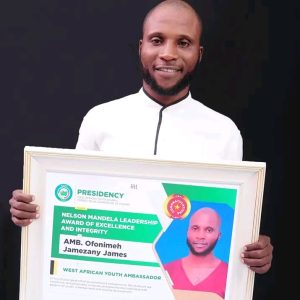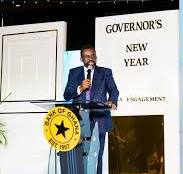About Author:Cultural Diplomat,ECOWAS West African Youth Ambassador,Head,Azania Filmmakers Association (pan-african)
Introduction
As a front‑line advocate for African film integration and a FESTAC Africa Festival Ambassador with 2025 edition held in Ghana in september, I’ve witnessed firsthand severally the power of cinema and culture to unite the continent.

Amb.Dr.Jamezany James
Ghana’s film industry—affectionately known as *Ghollywood*—has become a beacon of Pan‑Africanism, echoing the vision of Dr. Kwame Nkrumah, the father of Pan‑Africanism.
By strategically leveraging Nigeria’s Nollywood, Ghana has turned its creative spark into a catalyst for regional cooperation, cultural pride, and economic growth.
This article explores how Ghollywood’s rise supports African unity and how collaboration with Nollywood has amplified its impact.
Why Ghana’s Film Industry Matters for African Unity
Aspect Significance for the Continent
Cultural Resonance Produces stories in English,Twi, Ewe, Years Yoruba,Annang and other local languages that speak to West African lived experience and foster a shared identity.Pan‑African Platforms Hosts events like the Festac Africa Festival, drawing filmmakers, scholars, and diaspora communities from across the globe.
Economic Multiplier Generates jobs, supports small‑scale vendors, and promotes tourism—especially in historic sites like Cape Coast and Accra.
Soft Power Projects African narratives abroad, challenging stereotypes and shaping a positive global image of the continent.
How Nollywood Collaboration has Strengthened Ghollywood
1. Co‑Production Boom
– Joint projects such as _‘A Northern Affair’_ (Ghana) and cross‑border features have pooled budgets, talent, and equipment.
– Access to Nollywood’s production infrastructure (studios in Lagos, post‑production labs) has raised technical quality.
2. Distribution Reach
– Nollywood’s extensive network—YouTube channels, DSTV, Netflix, and emerging African streaming services—has opened West African and diaspora markets for Ghanaian films.
– Example: The Ghanaian hit *‘Azali’* premiered on Nollywood‑driven platforms, reaching 3 million viewers in 48 hours.
3. Talent Exchange & Skills Transfer
– Ghanaian directors (e.g., Leila Djansi) have mentored Nigerian creatives, while Nigerian producers have offered workshops on film financing and marketing in Accra.
– Short‑term residencies at Lagos studios have improved cinematography standards for Ghanaian crews.
4. Shared Festivals & Promotion
– Participation in Nigeria’s *AFRIFF* (Africa International Film Festival) has given Ghanaian films international exposure.
– Reciprocal showcases at Ghana’s *NAFF* (Northern African Film Festival) attract Nigerian audiences and investors.
5. Policy Influence
– Joint lobbying for continent‑wide incentives—tax breaks, simplified permits, and anti‑piracy legislation—has pushed ECOWAS to adopt a common film policy benefiting both nations.
Concrete Impacts on Ghana
– Production Volume: From 30 films (2018) to over 120 in 2023, partly fueled by co‑productions.
– Employment: An estimated 15,000 direct jobs created in acting, editing, costume design, and ancillary services.
– Tourism Boost:* Locations featured in joint films (e.g., Lake Volta) saw a 12 % rise in visitor inquiries in 2022.
– Revenue Growth:* Box‑office and digital earnings grew from $5 million (2019) to approximately $18 million (2023).
A Vision for the Future
1. Expand Co‑Production Funds* – Establish a Ghana‑Nigeria Film Fund with contributions from both governments and private sponsors.
2. Create a Pan‑African Distribution Hub – Use Ghana’s strategic West African location to aggregate content for global streaming.
3. Deepen Cultural Exchange – Encourage stories that feature Ghanaian and Nigerian heritage, reinforcing a shared African narrative.
Closing Thought
Ghana’s film industry, inspired by Nkrumah’s Pan‑African ideals and powered by Nollywood’s scale, stands as a living bridge connecting cultures, economies, and peoples.
When Ghana tells its stories, Africa listens; when it partners with Nigeria, the continent advances.
Let our screens continue to be corridors of unity.
Photo Caption:Dr Jamezany James(second from left) with African American Hon.Millie Tucker(Second from right) with HRM Patience Asante(First from left) all representing State of the African Diaspora SOAD receiving an award for SOAD from African Diaspora Support Association ADSA representative Mr Kobby(first from right) at the iconic Black Star Square in Ghana in January.
|
|




